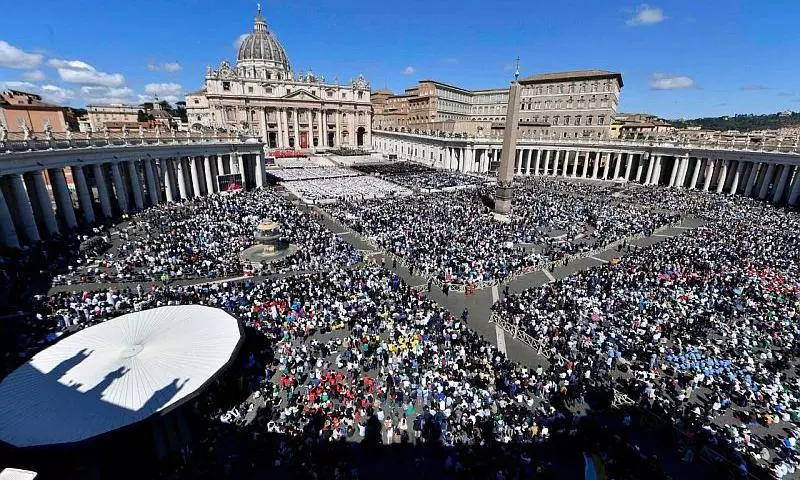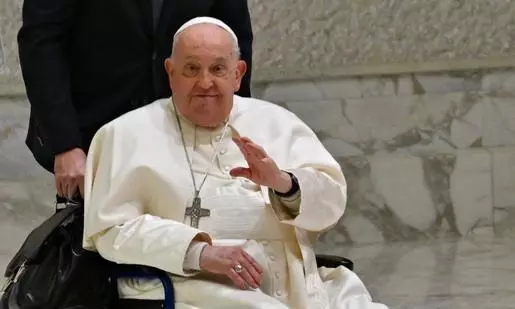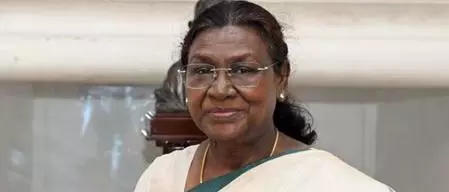
A voice of conscience the world needed: remembering Pope Francis
text_fieldsThe passing of Pope Francis marks the loss of one of the few remaining moral compasses on the global stage. As a Muslim and a public intellectual engaged in issues of justice and human dignity, I mourn not only the death of a religious leader but the silencing of a voice that consistently challenged the powerful and comforted the powerless.
He was the first pontiff I ever quoted extensively in my speeches and writings. And that decision was not taken lightly. In an era when many spiritual leaders avoid taking principled stands on pressing issues, Pope Francis stood apart. He was not afraid to speak clearly, compassionately, and consistently—even when it was unpopular.
-. But this was no final act of conscience—it was part of a sustained moral stance. Throughout Israel’s war on Gaza, he condemned the killing of children, calling it “cruelty, not war,” and urged the international community to investigate what he called acts that “bear the characteristics of genocide.”
Even while hospitalized, he kept calling Gaza’s only Catholic church daily, asking after the displaced: Do they have food? Do they have medicine? Do they have hope? For many in Palestine and across the Muslim world, he came to be affectionately known as “the Saint of Gaza.”
But his clarity of moral vision extended far beyond Palestine.
Just days after becoming pope in 2013, he broke precedent by washing the feet of a Muslim woman prisoner—an act of humility that transcended symbolism. He rejected Islamophobic narratives, stating clearly that all religions have violent actors: “Violent Catholics,” he quipped, “fill the newspapers too.” He denounced Qur’an burnings as “disgusting,” and insisted that no sacred text should be desecrated.
He also strengthened Muslim-Christian dialogue - not through diplomatic niceties, but by affirming shared ethical ground. In his first major papal document, The Joy of the Gospel, he described Muslims as those who “adore the one God” and recognized the shared reverence for Jesus and Mary. He supported the A Common Word Between Us and You initiative and co-signed the Document on Human Fraternity with Egypt’s Grand Imam Ahmed al-Tayyeb. That historic declaration affirmed that “God has created all human beings equal in rights, duties and dignity.”
This language wasn’t just ecumenical - it was universal.
In a country like India, where religious diversity is a defining feature of our national fabric, Pope Francis’s example is especially relevant. His vision of unity in dignity - not sameness, but solidarity - speaks to the challenges we face as a nation. As polarization rises, as religion is used to divide and dominate, we would do well to remember his message: faith must be a force for human dignity, not a weapon of exclusion.
His death has sparked grief across the Muslim world, including in Indonesia the world’s largest Muslim-majority countr0 - where leading Islamic organizations such as Nahdlatul Ulama and Muhammadiyah praised him for his tireless work for peace. “He turned the Catholic Church into the caretaker and defender of humanity,” said NU Chairman Yahya Staquf.
Francis embodied the ethic found in many faiths - and in none - that true spirituality requires service. The Qur’an says of those who followed Jesus: “And We instilled in their hearts compassion and mercy.” (57:27) Pope Francis lived those values - mercy, gentle compassion, and justice - not as slogans, but as commitments.
He defended refugees, challenged environmental destruction, and stood with Indigenous peoples. He criticized economic inequality and the dehumanizing effects of hypercapitalism. He didn’t seek applause. He sought accountability.
He didn’t change Church doctrine. But he changed the tone. He brought the papacy down from its marble pedestal and stood with those who had no pedestal at all. He showed that leadership grounded in humility and conscience can still command global respect.
In today’s India, and indeed across the world, this message needs amplification. We are living through a moment in history when too many leaders - religious and political alike - choose power over principle, performance over purpose, identity over inclusion. Pope Francis offered an alternative: leadership rooted in shared humanity.
Prophet Muhammad reminded us that “your Lord is One, and your father is one… No person is superior to another except through righteousness.” (Musnad Ahmad) The Qur’an declares: “We created you into nations and tribes so that you may know one another.” (49:13) These aren’t just theological ideals—they are moral imperatives. And Pope Francis tried to live them.
In Islam, we believe that death is not the end. It is the beginning of a legacy’s true measure. Pope Francis leaves behind more than words. He leaves a path - a path of courage, compassion, and conscience.
May we walk it, and may his memory continue to illuminate a world in need of light.
Tailpiece: Pope Francis’ popemobile, “the very vehicle from which he waved and was close to millions of faithful all around the world, is being transformed into a mobile health unit for the children of Gaza,” per his wishes.
Tailpiece: Pope Francis’ popemobile, “the very vehicle from which he waved and was close to millions of faithful all around the world, is being transformed into a mobile health unit for the children of Gaza,” per his wishes.https://www.vaticannews.va/en/pope/news/2025-05/the-popemobile-of-peace-pope-francis-final-gift-to-gaza.html
(Faisal Kutty is a Toronto-based lawyer and regular contributor to The Toronto Star. His articles also appear in Newsweek, Aljazeera, Zeteo, and Middle East Eye. You can follow him on X @faisalkutty)





















